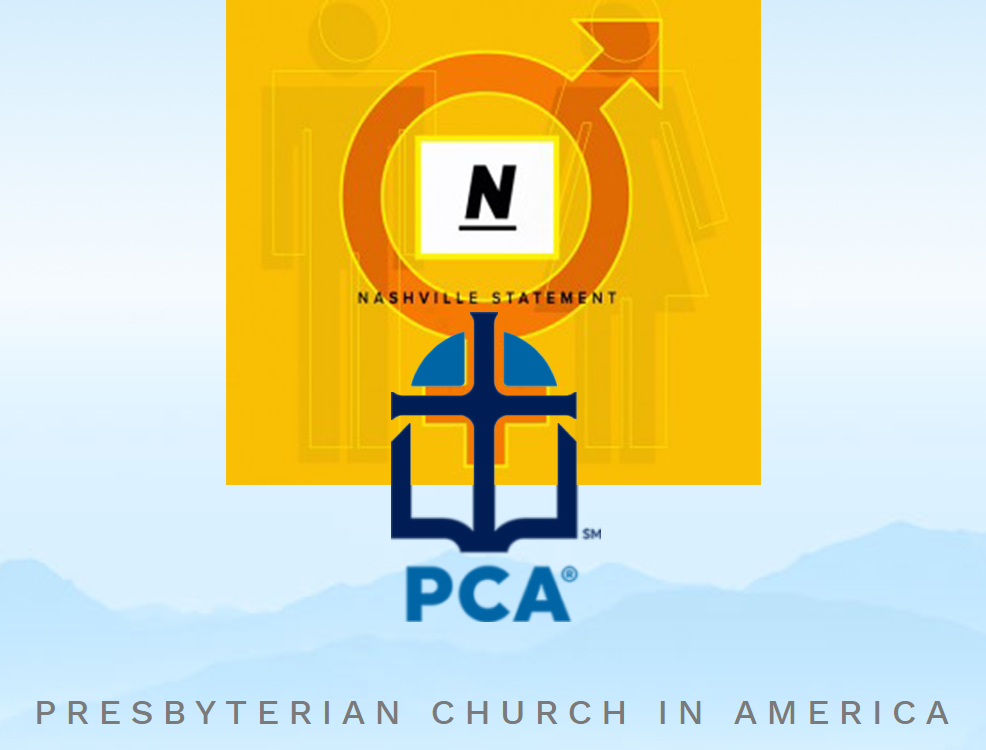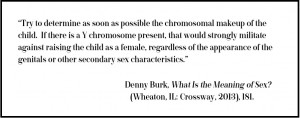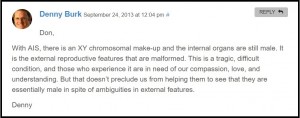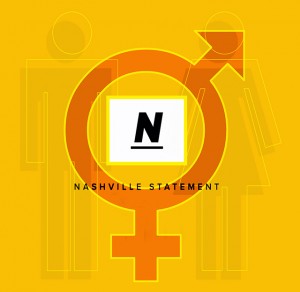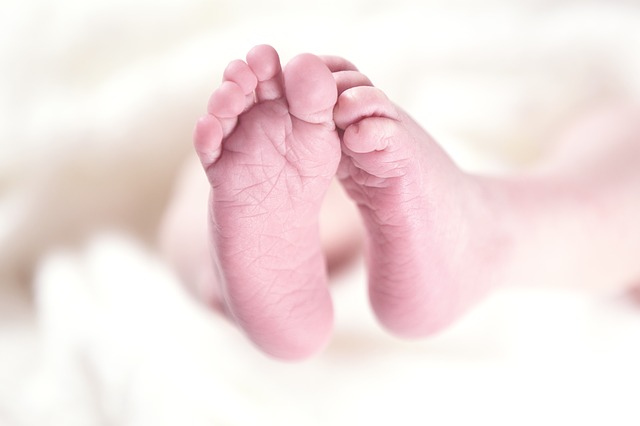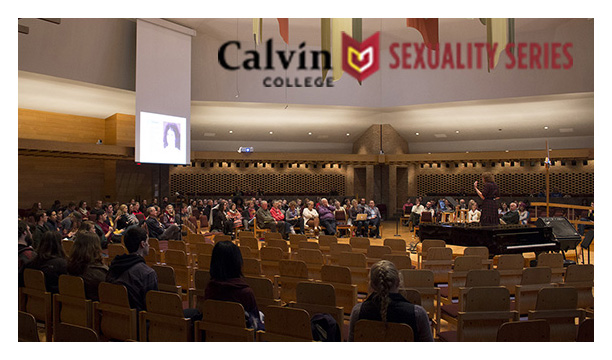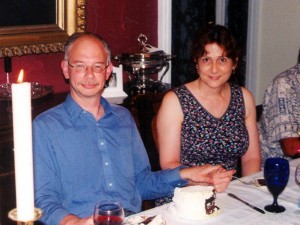A Christian friend recently suggested that being male or female is central to our humanity. He’s not the first one to do so.
God created mankind in His own image. Male and female He created us. Whether we’re male, female, or some combination of the two, we bear His image. A number of animal species are sexed in a way similar to humans and yet were not created in God’s image.
Adam and Eve sinned and were thrown out of the Garden of Eden. The result was disastrous for all of creation, but especially for us as fallen human beings. For Adam’s race—fallen humanity—the inability to do what we know is right is also central to our being. Our hearts are deceitfully wicked. Yet we still bear God’s image.
Jesus became like us. He took on our humanity. He became sin for us. He is not only our Redeemer, but our Kinsman. He died not for the angels, but to save those whom the Father had given Him. Us. Humans. That is surely more important to our humanity than the sex of our body. And we shall one day be more like Him. In bodies that do not reproduce.
This friend also suggested that intersex people are ‘already’ male or female, based on where God aimed His arrow, rather than where it struck. On what we might have been in the Garden of Eden, rather than on the body that God knit together in our mother’s womb.
My friend uses the potential for giving DNA or receiving DNA as God’s decree. Others say sperm or ova. Or the presence of a Y chromosome. Or the overall shape of the genitals at birth. In each case, they ignore the complexity of sex differentiation.
The result is often that we who are intersex are sometimes expected to be a sex that we’re not. No matter what the doctors do to my body, it’s not going to become male or female. Yes, I live as though my body were female. But I do so by God’s grace rather than by checking off all of the boxes.
Is intersex central to my identity? To my being? To my humanity? No. There is no special place or identity for intersex people in this country. Nor do I desire one. I’m content to live as a woman.
I write this—not because intersex is central to my humanity—but in response to one more Christian friend who thinks there can only be male and female, and isn’t shy about telling intersex people what their true sex ought to be based on.
The person I might have been had Adam never sinned doesn’t change the reality of my body or my gender. I am a part of the bride of Christ. I am a member of his body. As one who is being redeemed, Christ is central to who I am.
Yes, the Bible provides some distinct guidance based on our sex. And most people are born unambiguously male or female. It is good for a man and a woman to marry and produce Godly offspring. Not all can. And some choose otherwise for the sake of the Kingdom.
In the end, my Kinsman Redeemer will stand upon my grave. Mine. Even though my flesh has rotted away, I will see Him with my own eyes. Me and not another. Jesus knows me. I belong to Him.
My friend, I suggest to you that nothing matters more to our humanity than our relationship with the God who created us in His image. Nothing. Certainly not what sex we are.

